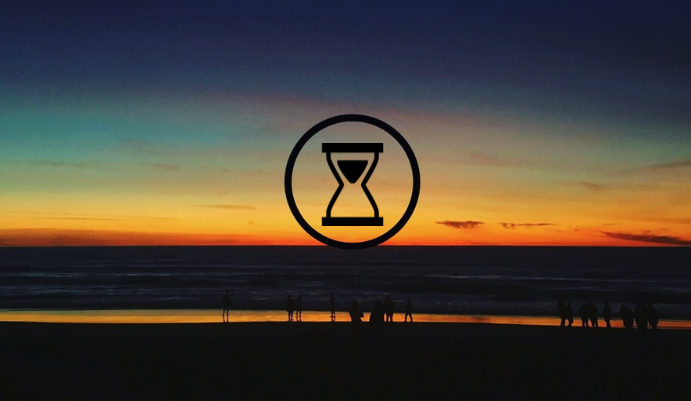Since I started graduate school, I think, I’ve revered industriousness and have been deathly afraid of unproductivity. It’s really weird, because I was just as gung-ho about doing well in high school and university, but in some sense I felt like at that time my life (and work) wasn’t really mine, and that I was just doing the bare minimum required to get the grades I was supposed to get, but no more - I was on a bus being driven to and fro. Even though EngSci was extremely time-consuming, I still had some “down time”, where it was set aside to just hang out with people, get stupid drunk, or go play basketball. Actually, it wasn’t “set aside” as much as I was doing anything to not spend time on school. Could I have gotten, better grades, been more involved in extracurriculars, or developed SOME kind of interest or hobby outside of school? Probably. But to be honest, the concept of setting aside time to do things as an investment of my future never occurred to me, and I just did whatever I wanted to do.
The moment I started graduate school, though, there was a fundamental change in my mindset. The best way I can describe it is that I began to think of my time doing research/reading/whatever as if it was time working on my own business: I get back as much as I put in, and no more, so if I want to be successful - and there is literally no bounds on what that means - I have to put in as much time as possible. In other words, every second of my time is a resource that I have to spend wisely to get the maximum return on investment I can get, and at this point in my life, it’s through working or reading or better equipping myself for research one way or another (narrow-minded, I know). From that moment on, I was always trying to preoccupy myself with work, and I convinced myself that unlimited industriousness is good. Of course it is
- there are countless numbers of motivational videos on Youtube, and many times more of quotes saying hard work is the secret to life.
After three years, though, I’m starting to think it’s becoming a condition of some sort that I cannot get rid of. I don’t know what specifically I was thinking about, but one day I had a thought that perpetual and uncontrolled laziness or procrastination is like a disease, since a person may literally feel as if they have no control over their inability to get started on doing work. And it dawned on me - I have just as little control over my inability to NOT think about work. Of course, that’s not to say that I’m always actually doing work, which is the stupid and ironic part, because I’m also starting to realize that, pushing myself or not, I end up doing about the same amount of work, except in one case, I feel extra bad that I’m taking time off so I just end up procrastinating doing something that I don’t really want to do, like watching the same video of Gordon Ramsey cooking a steak 5+ times on Youtube. For a while, I tried to consciously set aside time to relax by doing things that’s not work. But that never really worked, because I would just think that I could be spending this time doing work instead.
Now I realized I had it backwards: I was depending on the activity itself to relax me, but the truth is that relaxation comes from the conscious decision to do this thing - anything - instead of thinking about work. This happened a lot for meditation: I noticed that during times when there are no immediate deadlines, meditating is a huge boost to my energy level and general sense of wellbeing. But when I’m in a period of high stress because a deadline is approaching or just particularly busy with multiple things, meditating not only does not help, but makes the situation worse, because I end up getting distracted by work and then think that I should’ve just spent that time working instead. It was very frustrating because I thought meditating was suppose to make me more relaxed, not the opposite?! At some point, it dawned on me that meditation cannot make one’s mind more relaxed, but it is the relaxed mind itself - one that happily embarks on the small journey of being mindful despite all the chaos engulfing and bombarding the mind with responsibilities and tasks - that makes one’s mind more relaxed. In other words, more than half the battle is already won when I wholeheartedly commit myself to relaxing. Mind blown, right?
After a few more periods of alternating stress and relative idleness, I started to pick up on all the random little things that are truly indicators of my mental wellbeing. Willingness to meditate, of course, is probably a big one, precisely because it’s something that is truly unnecessary, in the sense that it does not accomplish anything that “needs to get done”. Going to the gym is another such thing. Household chores, in general, are pretty good litmus tests when I start to neglect them: dishes piling up in the sink even though I only cook like one meal a day, shirts not hung back up at the end of the day, etc. There is probably a direct inverse relationship between my daily cortisol level and how many times I flossed in the last week. Conversely, some things that I spend more time doing when I’m not doing well: Youtube, Twitter, and various other forms of social media, reading about random shit on Wikipedia or Buzzfeed, reading the news - though that’s largely a non-issue now since I avoid that like the plague. Anyway, the takeaway here is that how I’m treating myself in the face of external pressures is the best indicator of my mental wellbeing. Obviously I’m not saying to goof off every time there is more responsibility at work or something. It is simply to say that perhaps we need more loving and caring, from ourselves, precisely when we are being demanded the most (wow that sounds super obvious when I write it down that way).




